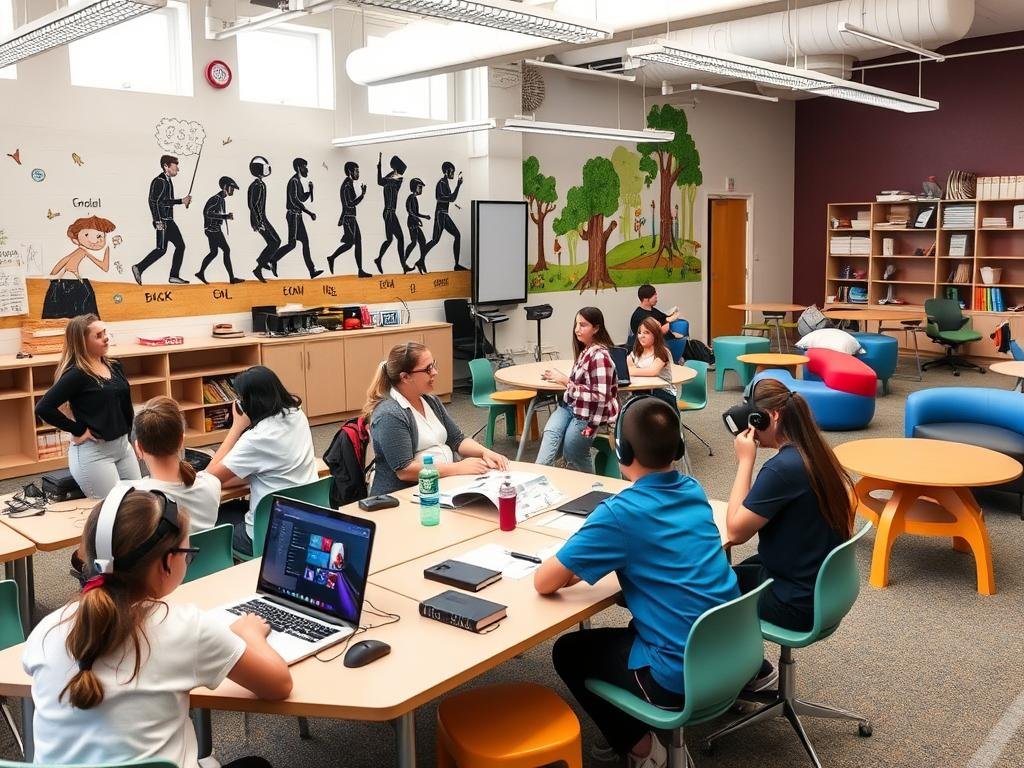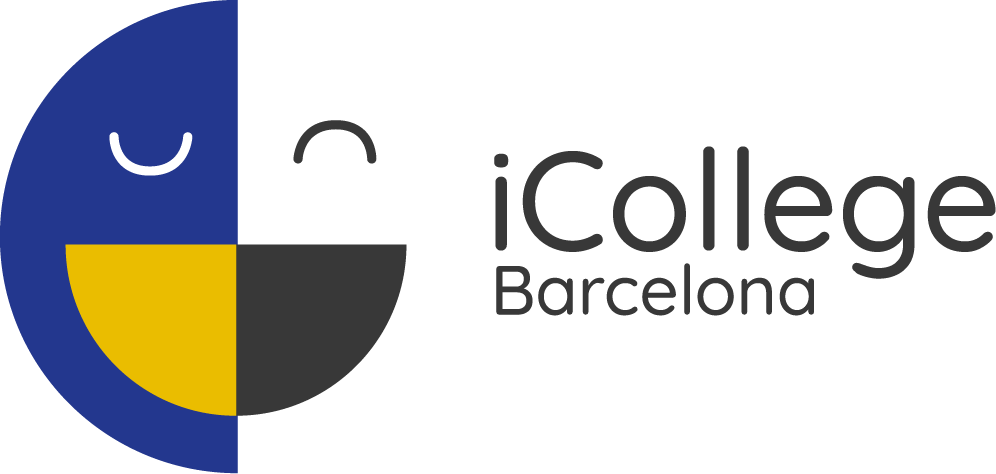In today’s fast world, continuous learning is key for growth. The learn unlearn relearn idea is powerful. It helps people adapt and succeed in a changing world. This idea is at the heart of personal development.
Starting this continuous learning journey lets you learn new skills and challenge old beliefs. It helps you stay ahead and reach your goals. The learn unlearn relearn way is about gaining new knowledge and being open to new things. It’s about being ready to let go of old ways and learn new ones for personal development.
Key Takeaways
- Embracing continuous learning is essential for personal and professional growth
- The learn unlearn relearn paradigm helps individuals stay adaptable and responsive to change
- Personal development is a lifelong journey that requires a growth mindset
- Being open to new experiences and perspectives is crucial for success
- Unlearning outdated practices and relearning new ones is essential for personal growth
- Adopting a learn unlearn relearn mindset can help individuals achieve their goals
- Staying ahead of the curve requires a commitment to continuous learning and personal development
Understanding the Learn, Unlearn, Relearn Paradigm
Embracing the learn, unlearn, relearn framework is key in today’s fast-changing world. It helps us keep learning and stay relevant. This approach supports us in growing both personally and professionally.

The Significance of Continuous Learning
Continuous learning boosts our personal and professional growth. By always learning, we keep our skills sharp and knowledge fresh. This makes us adaptable in different situations.
Breaking Down Mental Barriers
Many struggle with internal barriers when starting new learning habits. It’s important to overcome these to learn effectively. Mindfulness and setting goals can help us make this change.
The Psychology Behind Adaptive Learning
Grasping the psychology of adaptive learning is vital. It helps us create effective learning strategies. Being flexible and resilient are essential for continuous learning.
Why Traditional Learning Methods Need an Overhaul
Traditional education systems have long been the foundation of skills development. But they often struggle to keep up with today’s fast-changing world. The old-fashioned classrooms can’t provide the training and development needed for today’s jobs.

- Outdated curricula that don’t align with current industry needs
- Lack of emphasis on practical, hands-on experience
- Limited use of technology in facilitating learning
The job market is changing fast, and education needs to adapt. New learning methods can improve skills development. This makes people ready for the future’s challenges.
| Traditional Methods | Modern Approaches |
|---|---|
| Fixed curriculum | Dynamic and up-to-date content |
| Lecture-based learning | Interactive and experiential learning |
| Limited technology use | Integration of digital tools and resources |
The Art of Unlearning Outdated Knowledge
In the journey of self-improvement and education, knowing what to let go is key. Recognising outdated knowledge is the first step towards growth.
Identifying Obsolete Practices
Look at the methods and information you use now. Are there practices that don’t help you anymore? By checking your routines, you can find what needs updating.
Techniques for Releasing Old Habits
Breaking free from old habits takes training and commitment. Here are some effective ways:
- Mindfulness meditation to increase awareness of automatic behaviours.
- Setting specific goals to replace outdated practices with new ones.
- Seeking feedback from peers to identify areas for change.
Creating Space for New Knowledge
After letting go of old practices, make room for new education and experiences. This can be done by:
- Allocating time for continuous learning.
- Engaging in diverse training programmes.
- Embracing changes as opportunities for growth.
Mastering the Relearning Process
Embracing the relearning process is key for ongoing personal growth. It’s different from learning for the first time. Relearning mixes new info with what you already know, posing a unique challenge.
Relearning is harder because you have to revisit and sometimes forget old knowledge. This is vital for keeping your skills sharp and current.
To master the relearning journey, try these strategies:
- Set Clear Goals: Know what you want to achieve through relearning.
- Engage Actively: Get involved in practical activities to solidify new ideas.
- Seek Feedback: Check your progress with mentors or peers regularly.
Being patient and persistent is vital in relearning. Remember, mastering new skills and knowledge takes time. By staying dedicated and applying what you’ve learned, you boost your abilities and support long-term growth.
| Strategy | Description |
|---|---|
| Set Clear Goals | Establish specific objectives to guide your relearning efforts. |
| Engage Actively | Involve yourself in practical applications of new knowledge. |
| Seek Feedback | Obtain constructive input to refine your skills. |
Developing a Growth Mindset for Continuous Development
Having a growth mindset is crucial for personal development and self-improvement. It lets you tackle challenges and see failures as chances to learn and grow.
Embracing Change as Opportunity
Change might seem scary, but seeing it as a way to grow makes you stronger. By embracing new experiences, you unlock fresh ideas and personal growth.
Building Mental Resilience
Building mental toughness helps you face tough times with confidence. Mindfulness and positive self-talk can boost your stress management and adaptability.
Creating Positive Learning Habits
Making learning a daily habit is vital for ongoing self-improvement. Spend a bit of time each day reading, learning new skills, or thinking about your progress. This keeps you moving forward on your growth path.
| Strategy | Description |
|---|---|
| Set Achievable Goals | Define clear, realistic objectives to guide your personal development. |
| Embrace Lifelong Learning | Commit to continuously acquiring new knowledge and skills. |
| Practice Reflection | Regularly assess your progress and adjust your strategies as needed. |
| Seek Feedback | Encourage constructive criticism to identify areas for improvement. |
| Maintain a Positive Attitude | Stay optimistic and view challenges as opportunities for growth. |
Practical Strategies for Knowledge Acquisition
Improving your knowledge acquisition means using smart techniques to make learning easier. Here are some ways to enhance your skills development:
- Active Reading: Engage with the material by asking questions and summarizing key points.
- Note-Taking Methods: Use systems like the Cornell method to organize information well.
- Spaced Repetition: Review information at increasing intervals to improve memory retention.
- Mnemonic Devices: Create acronyms or associations to remember complex concepts.
Using new knowledge in real-life situations helps solidify learning and boosts skills development. Also, getting feedback from peers or mentors can offer valuable insights. Tailor these strategies to match your learning style for a more effective and enjoyable learning process.
“The beautiful thing about learning is that no one can take it away from you.” – B.B. King
Implementing Your Learn, Unlearn, Relearn Journey
Starting a journey of personal development needs a clear plan. By making a structured plan, you can smoothly go through learning, unlearning, and relearning. This helps you reach your goals.
Creating Your Personal Learning Plan
First, figure out what you want to improve. Think about the skills you want to get better at and what old ways you need to drop. Make specific goals and set a deadline to stay on track.
Measuring Progress and Success
It’s important to track how you’re doing. Use things like how well you meet your goals, your skill level, and what others say to see how you’re growing. Regular checks on yourself help you stay on course with your training and development plan.
Overcoming Common Obstacles
Every personal development journey has its challenges. Issues like managing time, losing motivation, and being stuck in old ways are common. To beat these, try setting small goals, getting help from a mentor, and keeping a positive outlook.
Tools and Resources for Enhanced Learning
Improving your education is simpler with the right tools and resources. These platforms and communities offer great support for your skills development and ongoing training.
Digital Learning Platforms
Online platforms like Coursera, Udemy, and LinkedIn Learning have a wide range of courses. They cover many fields, letting you learn at your own pace. You also get to access expert-led training programs.
Professional Development Resources
Investing in your professional growth is key. Look into industry-specific workshops, seminars, and certifications from well-known institutions. These resources improve your skills and boost your career chances.
Networking and Community Support
Creating a strong network greatly affects your learning path. Join professional groups on LinkedIn, go to local meetups, and take part in online forums. Being part of a community offers support, knowledge sharing, and chances for collaboration.
| Resource Type | Examples | Benefits |
|---|---|---|
| Digital Learning Platforms | Coursera, Udemy, LinkedIn Learning | Flexible learning schedules, diverse course offerings |
| Professional Development | Workshops, certifications, seminars | Industry-recognised credentials, career advancement |
| Networking Communities | LinkedIn groups, local meetups, online forums | Knowledge sharing, support networks, collaboration opportunities |
Building a Sustainable Learning Routine
Creating a sustainable learning routine helps you make learning a part of your daily life. Being consistent is crucial for personal growth.
Here are some strategies to build and maintain your learning habit:
- Set realistic goals: Break down your learning objectives into manageable steps.
- Schedule regular times: Allocate specific times each day for learning activities.
- Find your motivation: Identify what drives you to pursue personal development.
Integrate learning into various aspects of your day. For example, listen to educational podcasts during your commute or read a book during your lunch break. These small changes can make a big difference over time.
To keep your enthusiasm high, vary your learning methods. Mix reading with online courses and practical exercises to stay engaged. Remember, adaptability training allows you to adjust your routine as needed, ensuring long-term success in your personal growth journey.
Conclusion: Embracing the Journey of Continuous Growth
The learn unlearn relearn framework is key for personal growth and self-improvement. It helps you stay ahead in a world that’s always changing.
Embracing this mindset means you’re always learning. It’s about letting go of old knowledge and welcoming new ideas. These new ideas improve your skills and abilities.
Begin today by using the strategies we’ve talked about. Set personal goals and look for new learning chances. Stay open to change. This will help you reach your full potential in work and life.
Remember, growth is a journey that never ends. By focusing on self-improvement, you set yourself up for lasting success and happiness.
FAQ
What is the learn, unlearn, relearn paradigm?
The learn, unlearn, relearn paradigm is a way to grow and learn. It means learning new things, letting go of old knowledge, and adapting to new situations. This helps you stay up-to-date in a changing world.
How does continuous learning benefit my career?
A: Continuous learning boosts your skills and knowledge. This makes you more flexible and valuable at work. It also helps you move up in your career and stay ahead in a fast-changing job market.
What techniques can I use for effective knowledge acquisition?
To learn well, try active reading, spaced repetition, and mnemonic devices. Also, practice new skills and take adaptability training. This helps solidify your learning.
How do I develop a growth mindset?
To grow, embrace challenges, learn from feedback, and see failures as chances to improve. This mindset helps you grow and adapt in different situations.
Why is adaptability training important in today’s job market?
A: Adaptability training is key in today’s fast job market. It lets you quickly adapt to new tech, processes, and roles. Being flexible helps you handle changes well, making you more resilient and employable.
What are some practical strategies for personal development?
For personal growth, set clear goals, keep learning, reflect regularly, and enhance your skills. Use training and development programs and build a supportive network for feedback and motivation.
How can I overcome obstacles in my learning journey?
To beat learning hurdles, face mental barriers, stay motivated, and keep a growth mindset. Use digital learning platforms and get support from communities to overcome challenges.
What tools and resources are available for skill enhancement?
Many tools and resources help improve your skills. Look at online courses on Coursera and Udemy, professional development resources like workshops, and join industry groups for networking. These support your ongoing learning and growth.
How do I create a sustainable learning routine?
For a lasting learning routine, dedicate time for learning daily, fit it into your schedule, and build positive learning habits. Stay consistent and balance learning with other life tasks for long-term growth.
What is the difference between relearning and initial learning?
A: Relearning updates old knowledge to keep it current, while initial learning is the first time you learn something new. Relearning is more complex but crucial for ongoing growth.



